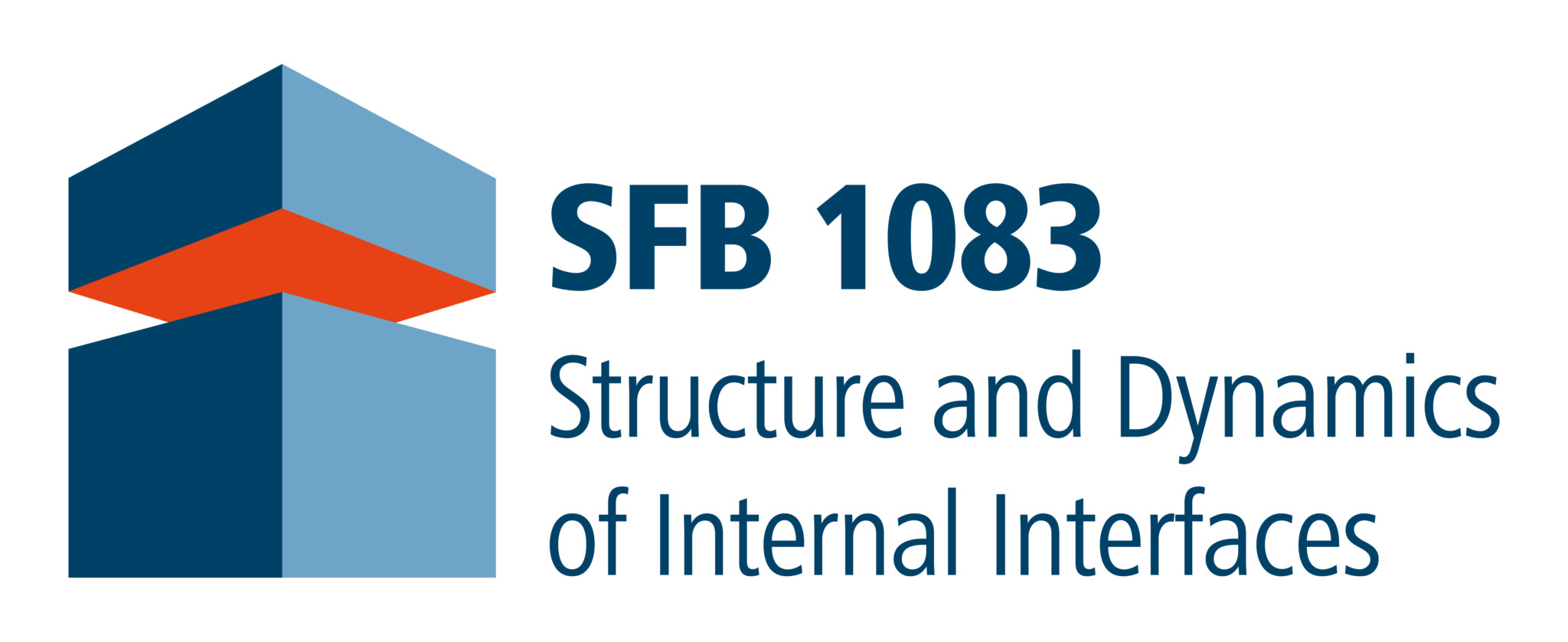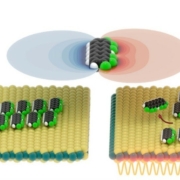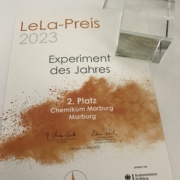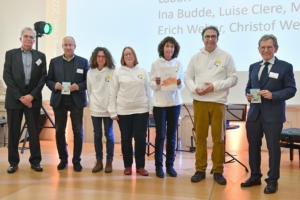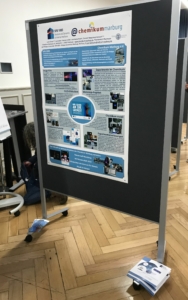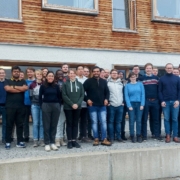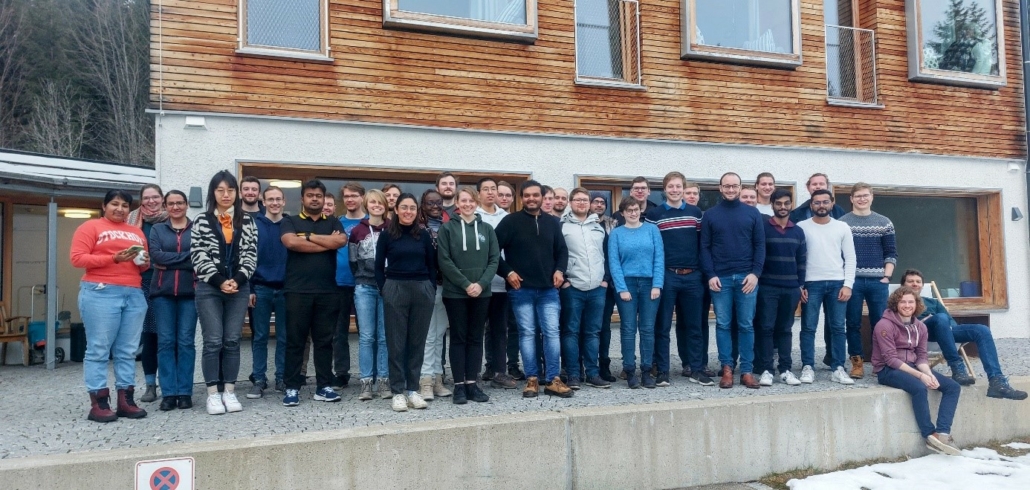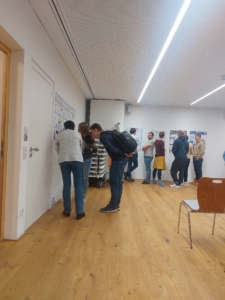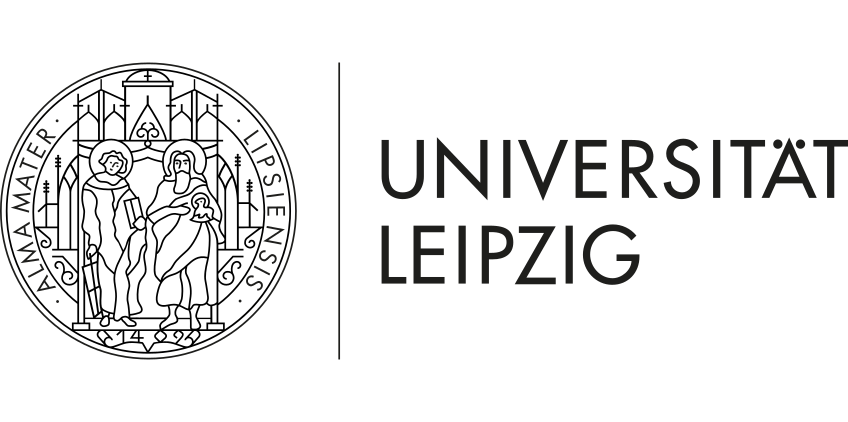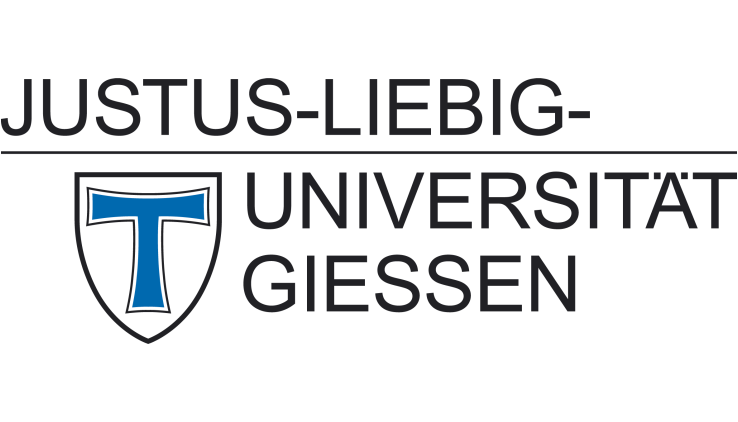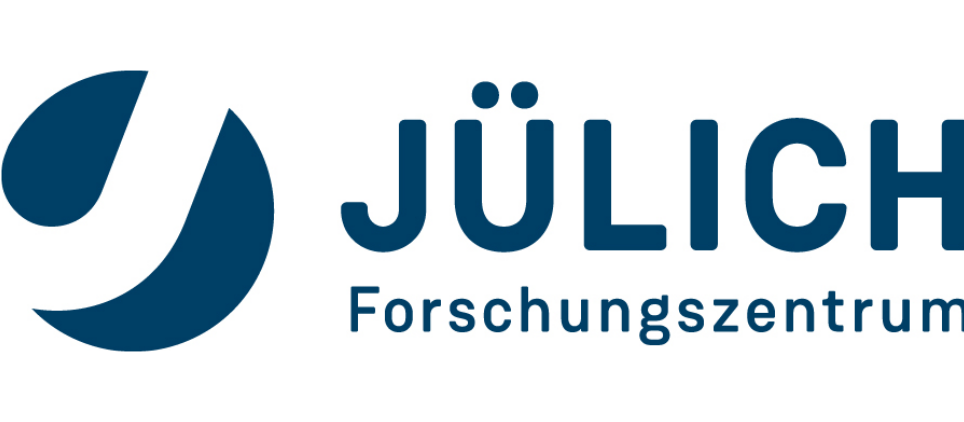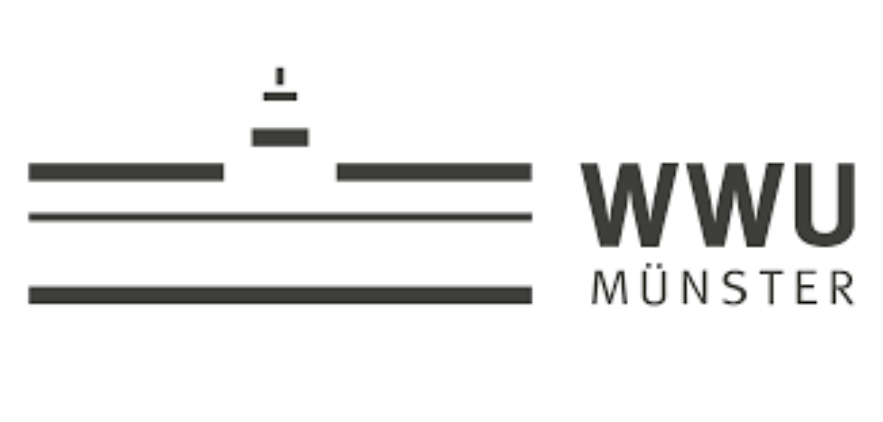Shape control in 2D molecular nanosheets by tuning anisotropic intermolecular interactions and assembly kinetics – Publication by A2 (Witte) and A8 (Koert/Dürr)
In a new publication in Nature Communications, the groups of Gregor Witte (A2) and Ulrich Koert (A8) introduce a new concept that allows to control the mesoscopic shape of 2D molecular islands grown on weakly interacting substrates like MoS2 without affecting their nanoscopic packing motif.
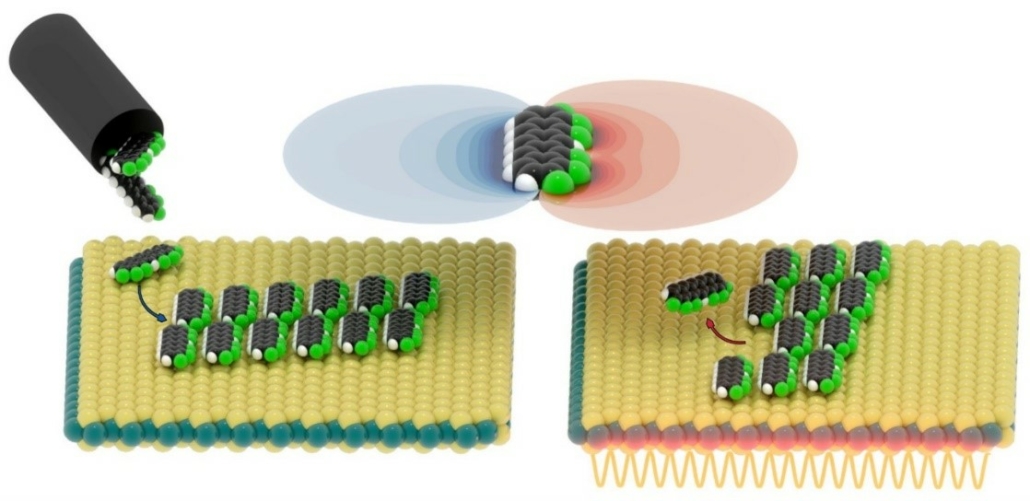
Schematic representation of the growth and desorption kinetics of partially fluorinated pentacene nanosheets (Image: Maximilian Dreher, Copyright CC-BY 4.0)
Hybrid heterostructures of transition metal dichalcogenides (TMDCs) and molecular materials combine the excellent charge carrier transport properties of TMDCs with the possibility to tailor optoelectronic properties of organic semiconductors. Since molecular materials often decompose upon exposure to radiation, lithographic patterning techniques established for inorganic materials are usually not applicable for the fabrication of organic nanostructures. Compared to metallic substrates, where molecule-substrate interactions dominate the mutual intermolecular interactions, the latter becomes decisive for adlayers grown on weakly interacting substrates such as TMDCs. This fact can be used to employ electrostatic Coulomb interactions between specifically designed, partially fluorinated pentacene derivatives to tailor the intermolecular interactions.
Using scanning tunneling microscopy, Maximilian Dreher and Pierre Dombrowski found that while the anisotropic attractive Coulomb forces between partially fluorinated pentacenes determine the molecular packing motif, distinctly elongated nanosheets are formed at submonolayer coverage, where the direction of elongation is different between directly grown nanosheets and those prepared by partial desorption of a complete molecular monolayer. Using kinetic Monte Carlo (MC) simulations, it could be shown that the nanosheet formation is not driven by an energy minimization of the intermolecular interactions. Instead, the sheet shape is determined by the evolution of individual molecules either attaching to or detaching from the nanosheets. Further MC simulations demonstrate statistically, that their formation is determined i) by the geometrical anisotropy of the intermolecular interactions and ii) by the kinetics during growth and desorption. By comparison of the behavior of differently fluorinated molecules, both experimentally and computationally, important design rules for molecules could be derived.
Publication
M. Dreher, P.M. Dombrowski, M.W. Tripp, N. Münster, U. Koert, G. Witte
Shape control in 2D molecular nanosheets by tuning anisotropic intermolecular interactions and assembly kinetics
Nat. Comm. 14 (2023) 1554 DOI:10.1038/s41467-023-37203-7
Contact
Prof. Dr. Gregor Witte
Philipps-Universität Marburg
SFB 1083 project A2
Tel.: 06421 28-21384
EMAIL
